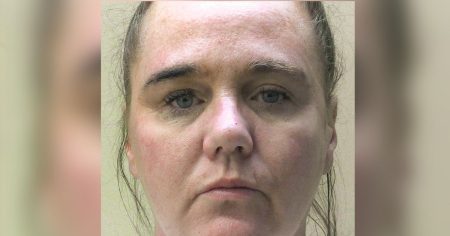The mansion in Perthshire, Scotland, was sold for £4.2 million just six months after it was won in a raffle by Jon, a Berkshire-based winner. The mansion overlooks a stunning golf course and was the top prize in an Omaze raffle draw last year. Jon, the winner, described the win as a dream come true and mentioned that he had been a regular subscriber to Omaze’s charity house draws, costing £10 to enter. The property was sold earlier this month for £4.2 million to a buyer based in southern England, marking a quick turnaround in ownership.
The so-called ‘Omaze curse’ sees most raffle properties sold within a year of being won, with winners often opting to sell the mansions due to the high upkeep costs. Winners receive £100,000 as part of the prize, but this is often insufficient to cover the expenses. Omaze, a US-founded fundraising company, acquired the mansion for £4.3 million and listed it for offers over £3.75 million earlier this year. The mansion boasts seven bedrooms and features an entertainment room, leisure suite, cinema room, golf simulator, guest annexe, and a luxurious open plan kitchen and dining area with a double-sided fireplace.
The mansion’s sales brochure highlights its bespoke design that focuses on impressive entertaining spaces and all en suite bedrooms, including a guest or staff apartment and leisure suite. The entertainment room, one of the highlights, features a double-height vaulted ceiling, log-burning stove, and full-height south-facing windows with views of the golf course and Ochil Hills. The property’s features also include a galleried balcony, stone-topped bar, and south-facing balcony overlooking the golf course. The mansion’s appealing design and amenities likely contributed to its quick sale post the raffle draw.
Jon’s quick sale of the mansion mirrors the trend among other Omaze winners who often sell the properties shortly after winning them. The allure of winning a luxury mansion in a raffle draw can be overshadowed by the significant upkeep costs associated with maintaining such properties. Despite receiving a substantial prize amount of £100,000, winners find it challenging to cover ongoing expenses, leading many to sell the houses soon after acquiring them. The quick turnaround in ownership indicates that while winning a luxury mansion in a raffle draw may seem like a dream come true, the reality of owning such a property can pose financial challenges.
The mansion’s sale to a businessman based in southern England underscores the broad appeal of luxury properties in desirable locations. The mansion’s prime location near Auchterarder, Perthshire, overlooking a golf course adds to its value and attractiveness to potential buyers. The features and amenities offered by the property, including the entertainment room, leisure suite, and golf simulator, make it an ideal retreat for affluent buyers seeking a luxurious lifestyle. The mansion’s sale within months of being won in a raffle draw highlights the dynamic nature of the luxury real estate market and the shifting ownership patterns among high-value properties.
In conclusion, the sale of the mansion in Perthshire, Scotland, for £4.2 million just six months after it was won in a raffle draw by Jon, reflects the challenges associated with owning luxury properties acquired through such means. The ‘Omaze curse’ trend of selling raffle properties within a year due to high upkeep costs is evident in this case. The mansion’s appealing design, bespoke features, and prime location contributed to its quick sale, attracting a buyer from southern England. The mansion’s sale underscores the allure and complexities of owning luxury properties, highlighting the financial considerations that come with such acquisitions. Ultimately, while winning a luxury mansion in a raffle draw may fulfill a dream, the practicalities of ownership often lead winners to opt for a quick sale.














